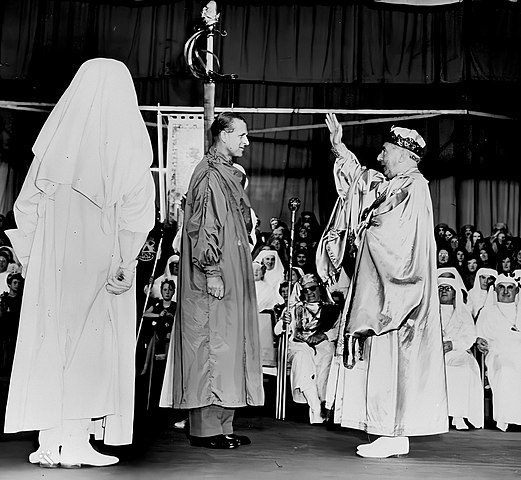‘A rude old man from a bygone age?’

Prince Philip at a ceremony with the Archdruid of Wales in 1960. The year after, he became the first member of the royal family to be interviewed on television. Photo by Hogyncymru – Own work, CC BY-SA 4.0
/ TRAVELS IN MY MIND

“Our battered suitcases were piled on the sidewalk again; we had longer ways to go. But no matter, the road is life”
– Jack Kerouac
I have a niece who is a Duke of Edinburgh scheme awardee. When Prince Philip died, barely two months before his 100th birthday, I asked her how she felt. “Sad,” she said, “I always liked him, he was funny.”
Now my niece was, by no means close to Prince Philip. She met him at a ceremony for the Award that bears his name. She was one of the millions — in more than 140 countries – who have benefited from the scheme since it started in 1956. She was one of the lucky ones, who as Prince Philip once said, got a “do-it-yourself growing-up kit” just by being on the scheme.
It spoke volumes too that my niece, a young woman with a pretty good sense of humour herself, remembered Prince Philip so fondly for his jocularity.
It made me realise the truth of what Robert Jobson has written in his forthcoming biography of the Duke: “[T]here has been a tabloid tendency in recent years to dismiss him as a rude old man from a bygone age. But from his fascination with television and space travel to his conviction that the royals must remain relevant to the public, Philip had his eye on the future, even when so many forces within the palace seemed more committed to the past.”
He certainly had the wisdom to see that investing in young people is the best possible use of resources.

